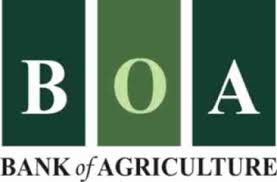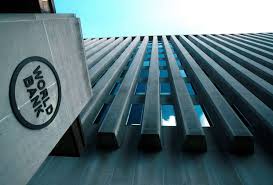Banks generally fall into the category of external institutional sources of credit for farmers. The Nigerian government had established various banking institutions to cater for agricultural lending. This article gives further details on these institutions.
The role of a bank is to mediate between those who have surplus funds and lend to those who require loans. It was recognised that for a developing economy like Nigeria, lending to agriculture is different from commercial banking.
The Nigerian Agricultural Cooperative and Rural Development Bank (NACRDB)
The Nigerian Agricultural Bank Ltd. (NAB) was established in 1973 by the Federal Military Government as a Federal Agricultural Bank. Its main objectives were rapid transformation, expansion, and modernisation of agriculture. The government, recognising the important roles cooperatives have to play in the development of agriculture, renamed the bank Nigerian Agricultural and Cooperative Bank Limited (NACB).
The wide scope of operation of commercial banks and their profit objectives put the agricultural sector at a disadvantage in competition for funds with other sectors of the economy. The NACB was established to redress this situation. In 2000, NACB was therefore incorporated into the Nigerian Agricultural Cooperative and Rural Development Bank (NACRDB).
Read Also: Reasons why Fishes Refuse to Eat their Feed and How to Correct it
Other Bodies Specialising in Agricultural Credit

These are bodies or institutions, other than agricultural credit banks, which provide credit to agriculture. They include:
1. Commercial Banks
As previously stated, commercial banks are financial intermediaries who receive deposits and lend to businesses, including agriculture. While banks are the principal sources of capital, they are not always a more important source of credit to agriculture than the informal sector.
2. Cooperative Banks
The first rural cooperative credit institutions were founded in Germany in the late 19th century. These cooperatives later formed village and regional banks. Rural cooperative banks are well suited to supply credit to agriculture, especially small farmers, because:
i. They are service-oriented and not profit-oriented, hence they can offer cheap credit to farmers.
ii. Their projects are agriculture-based, so the opportunity cost of agricultural credit is zero.
iii. Administrative charges are minimal because branches are rural-based, and staff do not need additional training.
iv. They are rural-based and therefore have knowledge of the borrower’s business and creditworthiness, reducing the diversion of funds because the bank can monitor the borrower’s farming activities.
v. The borrower is not hindered by procedures because they are readily explained by staff.
vi. With proper management, cooperative banks can generate their own funds and would not need a helping hand from state governments.
In spite of the suitability of cooperative banks in supplying credit to farmers, cooperative banks in Nigeria are not suitable for financing agriculture in general, and the small farmer in particular. They have been operating in the same manner as commercial banks.
They are unable to generate capital internally and lack adequate financial support from the government. If the small farmer is to be provided with proper banking facilities, the financial system must be altered to accommodate cooperative banks in their real sense.
3. Cooperative Societies
The International Cooperative Alliance (ICA) defines cooperatives as an autonomous association of persons united voluntarily to meet their common economic, social, and cultural needs and aspirations through a jointly owned and democratically controlled enterprise.
Cooperative credit organisations are created to make credit facilities available to members at reasonable costs. The principles guiding cooperatives are as follows:
i. Voluntary and open membership without any form of discrimination, and members should be willing to accept the terms of membership.
ii. Democracy.
iii. Economic participation – Members contribute equally to and democratically control the capital of their cooperative. Surpluses are allocated to several uses, such as developing the organisation, setting up reserves, and benefiting members according to their transactions with the cooperative.
iv. Constant education and training of members.
v. Cooperation among cooperatives – They serve their members most effectively and strengthen the cooperative movement by working together through local, national, and international structures such as cooperative unions.
vi. Sustainable development of their communities.
vii. Autonomy and independence.
4. Credit Unions

A credit union is a cooperative financial institution owned and controlled by its members. Credit unions differ from banks and other financial institutions in that the members, who have accounts in the credit unions, are the owners of the credit unions. Policies governing interest rates and other matters are set by a volunteer board of directors elected by the members.
Only members may deposit or borrow money from it. Credit unions pay higher dividend rates on shares/deposits and charge lower interest rates on loans than banks. The revenue of credit unions must exceed operating expenses and dividends to maintain capital and solvency.
5. Community Banks
The number of community banks in the country has fluctuated in recent years due to reforms in the financial sector and the need to ensure that only sound and adequately capitalised banks continue to operate. The number rose from 66 in 1991 to 11,368 in 1995 and then dropped to 747 in 2001 before increasing again to 753 at the end of 2004.
The average deposit liabilities of community banks increased steadily from N1.2 million in 1991 to N6.8 million in 1998 and to N34 million in 2004. The average loans and advances of the banks rose from N0.27 million in 1991 to N3.47 million in 1998 and to N18.44 million in 2004.
7. Non-governmental Organisations (NGOs)
NGOs are private organisations that pursue activities to relieve suffering, promote the interests of the poor, protect the environment, provide basic services, or undertake community development.
The activities of NGOs cover such areas as health, education, human rights, environment, and agriculture. NGOs may provide credit to farmers in cash or kind and may offer training and advice to farmers on the best methods to improve agricultural production and manage their finances.
8. Bank of Industry (BOI)
The BOI is owned by the Federal Government of Nigeria. The bank emerged from the government’s rationalisation of some Development Finance Institutions (DFIs), namely the Nigerian Bank for Commerce and Industry (NBCI), the Nigerian Industrial Development Bank (NIDB), and the Nigerian Economic Reconstruction Fund (NERFUND). The bank has four subsidiaries from its merger with NIDB:
i. Leasing Company of Nigeria (LECON)
ii. NIDB Trustees Limited (NTL)
iii. NIDB Consultancy and Finance Limited (NIDB Consult)
iv. Industrial and Development Insurance Brokers (IDIB)
The bank has an initial capital base of N50 billion. It engages in projects in areas where Nigeria has a comparative advantage, in projects that involve efficient conversion of local raw materials into finished goods, and in ventures that are cost-effective, with quality products that can be marketed at home and abroad.
The bank offers the following services: medium- and long-term loans, equity financing, working capital finance, management of dedicated funds, loan guarantees, co-financing, investments in corporate boards, lease financing, trusteeship, stock brokerage, foreign exchange dealership, and insurance brokerage.
Read Also: Reasons why Feeding your Fishes is very Important
The World Bank

The World Bank specialises in agricultural credit through assisted programmes such as Agricultural Development Projects (ADP), Fadama I, Fadama II, and the ongoing Fadama III projects.
The African Rural and Agricultural Credit Association (AFRACA)
AFRACA is an association of banks and financial institutions directly involved in providing financial services for rural development. Its membership is open to all central banks, commercial banks, government institutions, and other organisations involved in rural development. AFRACA was established in 1971 and has liaison status with the Food and Agricultural Organisation (FAO) of the United Nations.
In this article, the roles of Agricultural Credit Banks such as the Nigerian Agricultural Cooperative and Rural Development Bank (NACRDB), Commercial Banks, Cooperative Banks, Cooperative Societies, Credit Unions, Community Banks, NGOs, the Bank of Industry, and the World Bank supporting the Fadama I, II, and III projects have been highlighted. Additionally, AFRACA, which is an association of banks and financial institutions providing financial services for rural development, has been discussed.
Do you have any questions, suggestions, or contributions? If so, please feel free to use the comment box below to share your thoughts. We also encourage you to kindly share this information with others who might benefit from it. Since we can’t reach everyone at once, we truly appreciate your help in spreading the word. Thank you so much for your support and for sharing!
Read Also: Analysis of Biodata Relating to Water Quality (H2O)






